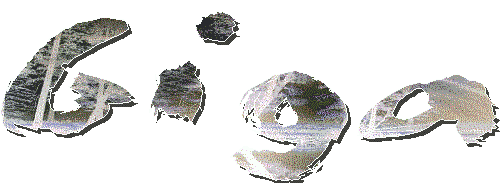

Statistics regarding national average I.Q. scores imply that the actual level of one in a billion of the world population occurs between I.Q. 180 and 185 rather than at the theoretical 190 where it lies according to the "normal distribution". This is so because the world average I.Q., projected onto the commonly used scale with 15 points per standard deviation, is not 100 but 88, according to recent estimates of national average I.Q.'s and population sizes. The crux is that the I.Q. scale we use is based on the adult populations of Western countries, and is not correct for the rest of humanity. The national average I.Q.'s meant here are those published by Lynn and Becker, and previously Lynn and Vanhanen.
For consistency though, the Psychometitor has decided to keep the Giga Society pass level at its original height rather than lowering it to its proper value. This means the admission requirement is more stringent than originally claimed by the society, and the current members have met this more stringent requirement, albeit in some cases by preliminary norms that were later renormed downward. In fact, this admission level may lie outside the range of scores that can be statistically expected given the world intelligence distribution. But since the norms at this very top of the range are tentative — sometimes too high, sometimes too low, searching for their true value — it can be expected that every now and then a candidate will qualify. To date, mid-2025, sixteen have qualified, of which one never joined, one died, three resigned, and one membership was deactivated for long-term inactivity, so that ten active members remain. If this seems too many, see below for this misconception to be cleared up.
The uncertainty of the norms in this range means that the world's most intelligent persons are not necessarily all found in the Giga Society; the actual I.Q.'s of the members, as assessed by the best tests and norms, vary between approximately 150 and 200, the bulk of them being over 160 though. There exist people of similar intelligence who are not members. For information about the truly most intelligent — that is, the highest scorers based on the best norms and best tests according to the most recent insights — see the report Statistics of the top scorers.

Many think the Giga Society can only have eight members as a result of its admission level and the size of the world population. This is false. The top eight are not the same individuals at each moment, but are being succeeded by the smartest of the generation below them. And as existing members are not expelled when they are no longer among the top eight, a multiple of that number of members is possible over time.
In addition, tests do not intercorrelate perfectly, although they intercorrelate positively; with a typical correlation of .7 between tests, one is, over multiple tests, selecting about 150 % of the number one is selecting on each individual test, which means that at any given time about twelve persons could theoretically qualify; combined with the argument in the previous paragraph, a multiple of that number (twelve) is possible over time. On the level of members, this imperfect correlation allows for different aptitude profiles to enter.
Another way to look at it: Since 1996, on average 5 candidates per decade have entered so far. At this rate, and considering the life expectancy and the fact that one most likely qualifies beyond age sixteen so that on average one in about 6.5 members die per decade, straightforward arithmetic shows it will stabilize around 30 members in the 2130s.
Some think the Giga Society's members must be proportionally divided over the continents. This fallacy results from the prejudice that average and spread of mental ability are identical everywhere in the world. But the Giga Society has no prejudice, goes exclusively by test scores, and is blind to a candidate's continent of origin.
As an aside, the member list is not public, so those speaking about the origin of the members may be misinformed to begin with. Possible Giga Society member lists one may find on the Internet should not be trusted, and to know if someone who claims to be a member is an actual member one should contact the Psychometitor for verification. In particular, one must be careful with information found on do-it-yourself online encyclopedias, as a tendency can be observed for narcissists and megalomaniacs to write themselves in the member list.